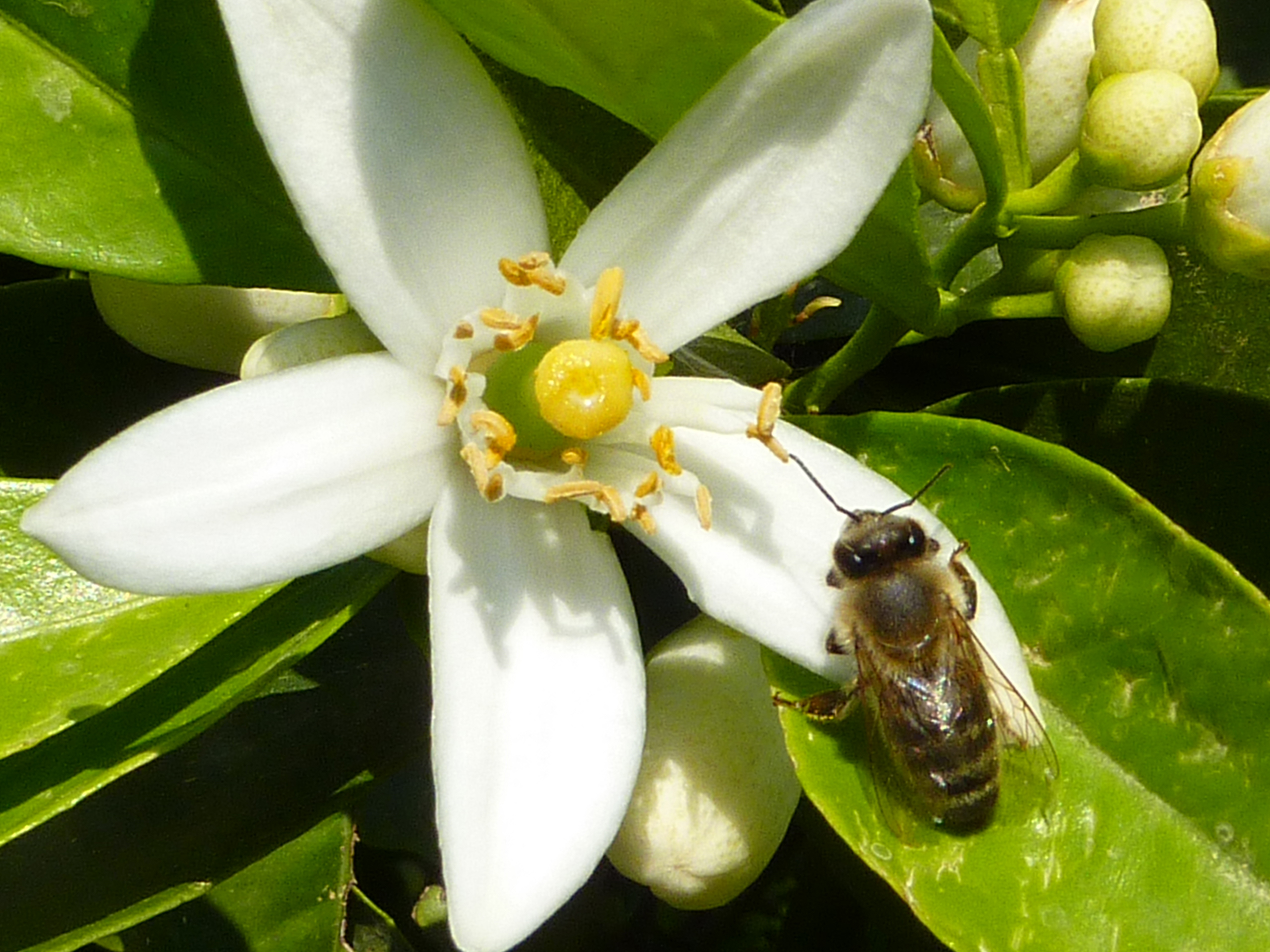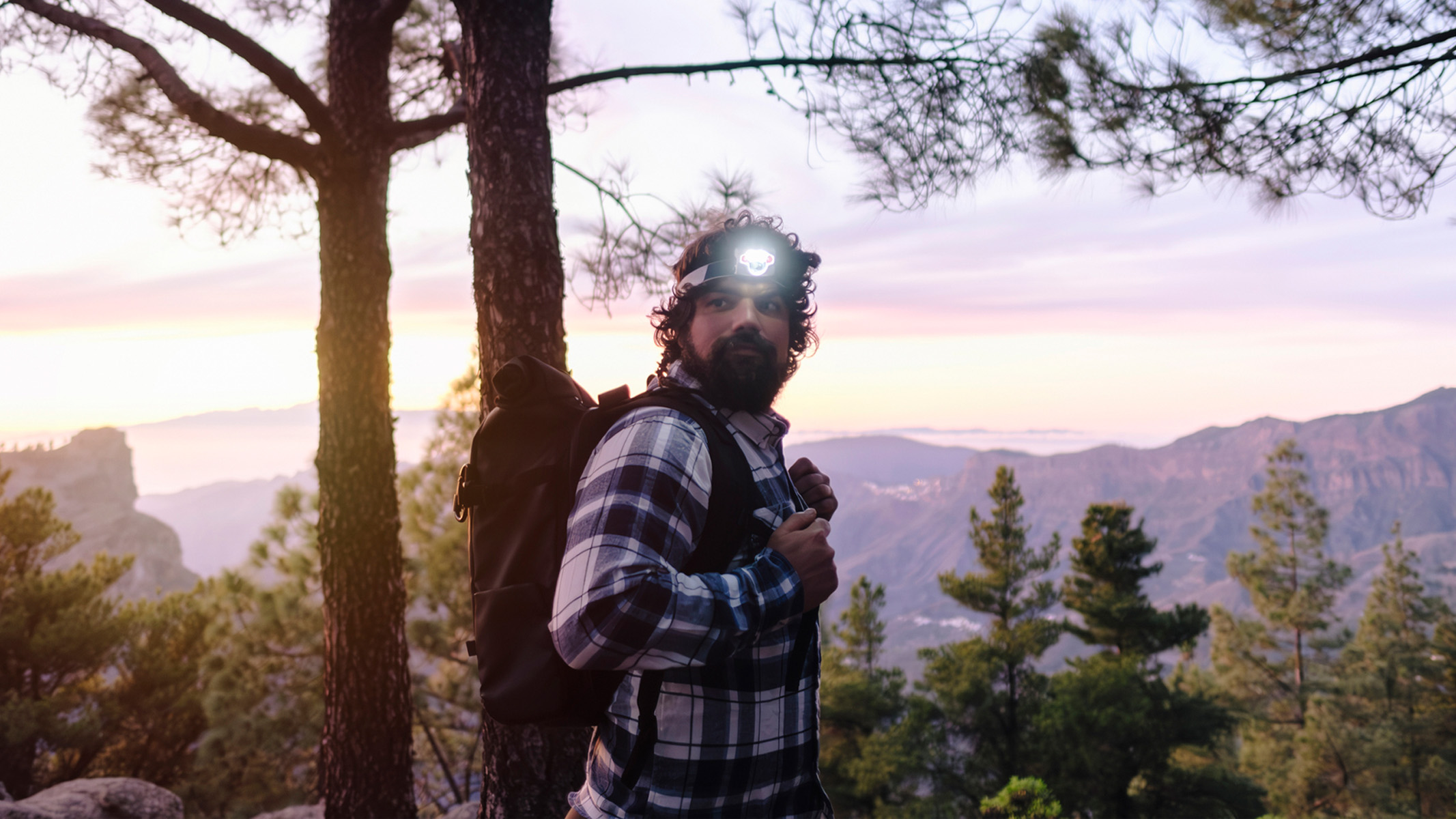Caffeine Gives Bees a Memory Boost

Honeybees, like tired office employees, like their caffeine, suggests a new study finding that bees are more likely to remember plants containing the java ingredient.
Caffeine occurs naturally in the nectar of coffee and citrus flowers. Bees that fed on caffeinated nectar were three times more likely to remember a flower's scent than bees fed sugar alone. The findings, detailed today (March 7) in the journal Science, show how plants can manipulate animals' memories to improve their odds of pollination.
"Remembering floral traits is difficult for bees to perform at a fast pace as they fly from flower to flower, and we have found that caffeine helps the bee remember where the flowers are," study leader Geraldine Wright, a neuroethologist at Newcastle University, UK, said in a statement. "Caffeine in nectar is likely to improve the bee's foraging prowess while providing the plant with a more faithful pollinator," Wright added.
In their study, Wright and colleagues measured how much caffeine was in the nectar of three different species of the Coffea plant, including the "robusta" plant used to make freeze-dried coffee and the "arabica" plant used to make espresso and filter coffee. They also measured the amount of caffeine in four species of the Citrus plant: grapefruit, lemons, pomelo and oranges. All of these plants contained caffeine. [10 Things You Need to Know About Coffee]
Plants produce caffeine as a defense mechanism — a bitter-tasting brew to fend off insects. Fortunately for the bees, the caffeine levels are below the threshold that they can taste, but high enough to affect their memory, the authors say.
Next, the researchers used a form of Pavlovian conditioning to test how the caffeine affected the bees' memory. Bees have a reflex where they stick out their mouth parts when they encounter something sweet. The scientists trained the bees to extend their mouths in response to a floral scent, in order to receive a reward of sugar alone or sugar containing different levels of added caffeine.
Caffeine had a strong effect on the bees' memory. Even 24 hours later, three times as many bees remembered the scent that was paired with a caffeine reward as the plain sugar. Twice as many bees remembered the flowers' scent after three days.
Get the world’s most fascinating discoveries delivered straight to your inbox.
"I think it's the first example of nature manipulating memory in an animal," neuroscientist Serena Dudek of the National Institutes of Health, who was not involved in the study, told LiveScience. "We all have this impression that caffeine is made to be toxic to animals," Dudek said, but "it's surprising that these plants use caffeine not as a toxin but as an advantage in getting bees to remember better."
In mammals, caffeine has been shown to affect circuits in the brain's memory center, the hippocampus. Cells in the brains of insects are similar to neurons in the hippocampus. To see how caffeine affected these cells, the researchers recorded the electrical activity of honeybee brains bathed in a caffeine-containing liquid. The caffeine had a noticeable effect on the brain cells' activity, results showed.
Wright and colleagues think the caffeine is affecting neurons in the bees' brains in a way that reinforces memories. The results hint that similar mechanisms might apply to caffeine's effect on humans.
Follow Tanya Lewis @tanyalewis314. Follow us @livescience, Facebook or Google+. This article was first published on LiveScience.com.

